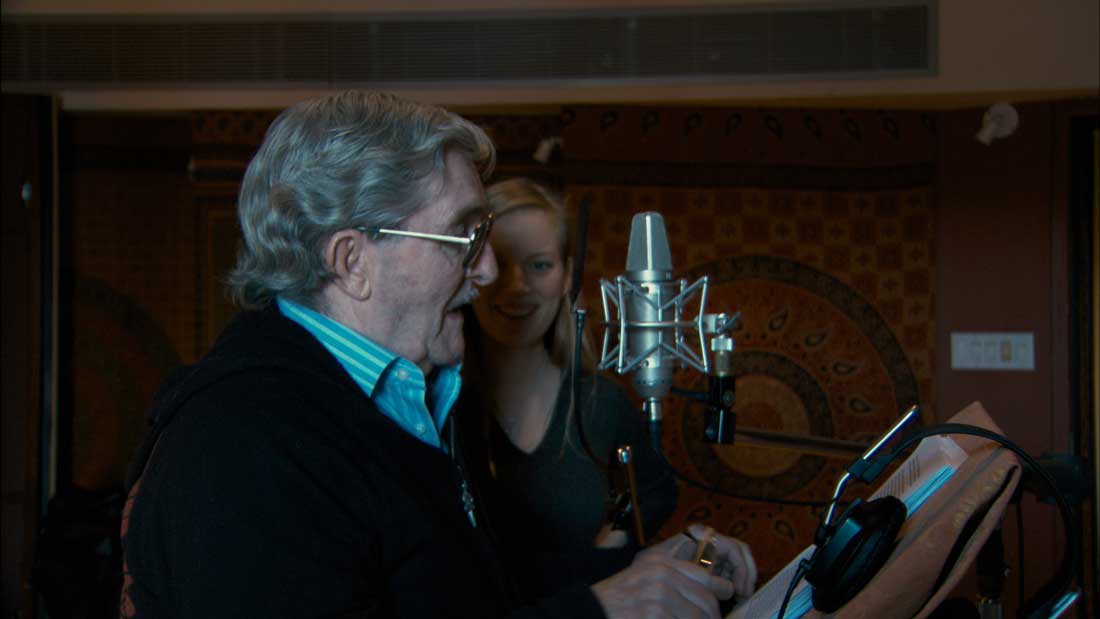Sarah Polley was the It Girl of independent cinema in the late 1990s. The small, serious, fiercely intelligent native of Toronto was still a teenager when she gave unignorable performances in films such as The Sweet Hereafter, Guinevere, and Go. Having had a taste of life as an A-list actor, she decided she didn’t want stardom. Though she still acts occasionally (to devastating effect in the deeply unsettling 2009 science-fiction horror film Splice), she has mostly channeled her energies into writing and directing films. She hasn’t yet delivered a full-blown masterpiece as a filmmaker, but both her 2006 study of aging, Away From Her, and her 2012 romance, Take This Waltz, showed sustained flashes of astonishing talent behind the camera.
Her newest film, Stories We Tell, is her first documentary and the finest, most searching work she has done so far. In it, she turns the cameras on her family. Born to actor parents in 1979, Sarah looked so little like her British émigré dad Michael that her family members (Michael included) frequently joked that another man must have fathered her. Her mother Diane had died of cancer in 1990, and as Sarah started to research Diane’s life in 2006, she turned up startling evidence that her mother might have indeed had an affair while working on a play in Montreal at the time Sarah was conceived. The setup for the movie, at least at first, is Sarah’s quest to find the truth about her parentage.
Plenty of documentarians have gone rattling the skeletons in their families’ closets for material. Gratifyingly, Sarah Polley turns out to be after more than just dishing personal dirt, though she makes hay out of some incredible coincidences in the story. She conducts exhaustive interviews with her dad, her two older siblings, two half-siblings from Diane’s first marriage, and a plethora of actors and professional acquaintances who knew the Polleys. These are intercut with footage of Michael Polley in a recording studio, reading (in an enviable milk-chocolaty voice) his own elegantly written account of his marriage, under his daughter’s direction. The identity of Sarah’s biological father is revealed a scant 40 minutes into this 108-minute film, but the director is more interested in the discrepancies between her subjects’ stories. Early on, Diane’s brother (who was also her doctor) recalls talking Diane out of having an abortion while pregnant with Sarah, but Michael remembers her changing her mind while being driven to the hospital to have the procedure done.
Yet this film isn’t a Rashomon-like meditation on how bias and subjective experience can color one’s memory. Instead, Sarah keeps turning in ever-widening circles, eventually asking herself why she’s making this film and why she’s trying to reconstruct her mother in such a roundabout way. And things do get roundabout, as Sarah’s shots of the filmmaking equipment and her film crew setting up illustrate the process that her family members have been subjected to. Home movies of her parents’ younger selves frolicking at parties and clowning around with the Polley children are revealed to be filmed re-enactments using actors. The layers of metafiction keep this movie from turning into a self-indulgent wallow in family dysfunction. However, they don’t keep Polley from drawing compelling portraits of both the brilliant but emotionally remote Michael and the mercurial, irresponsible, vivacious, frustrated Diane, who was continually in search of more excitement and romance.
In that regard, the Diane Polley who emerges here is markedly similar to the heroine played by Michelle Williams in Sarah’s Take This Waltz. Sarah could have used this movie to point out how marital infidelity is a theme in her fiction films and what that means, but she winds up painting herself to be as reticent as Michael Polley. She also neglects to point out that she recently became a mother herself, a detail that would have put a neat little bow on the proceedings. Then again, Sarah Polley has always been more concerned with asking questions about the conventions of storytelling instead of with neat little bows. Stories We Tell is plenty provocative, but I think I might see more thought-provoking documentaries this year. Will I see a more cleverly conceived one? Somehow I doubt it.
[box_info]
Stories We Tell
Starring Sarah Polley and Michael Polley. Written and directed by Sarah Polley. Rated PG-13. Fri-Sun at Modern Art Museum of Fort Worth, 3200 Darnell St, FW. $6.50-8.50. 817-738-9215.
[/box_info]












